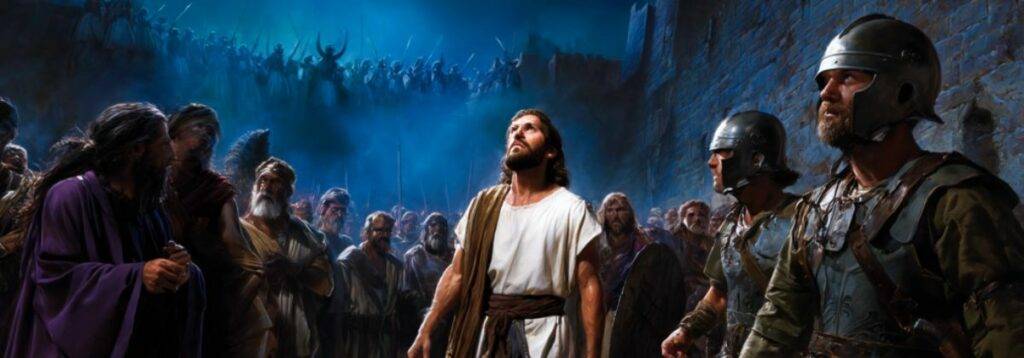As Yeshua stood in the Garden of Gethsemane, the weight of the cross looming, a mob approached with swords and torches. Peter, full of zeal and loyalty, drew his sword and struck the servant of the high priest, cutting off his ear. But Jesus rebuked him—not because He feared the mob, but because He surrendered to a greater purpose. “Put your sword back in its place,” He said, “How then would the Scriptures be fulfilled, that it must happen this way?” (Matthew 26:52–54). In that moment, Jesus modeled what it means to obey the will of God when it costs everything.
Yeshua didn’t die because He was overpowered. He chose to walk into suffering because it was the path set before Him by the Father. He even reminded Peter that He could call down more than twelve legions of angels at any moment—but He refused to use that power. Why? Because obedience required surrender, not strength. His obedience was not just passive acceptance—it was active surrender. He wasn’t looking for a way out. He was looking to fulfill what was written. And that same spirit of surrender is what God invites us into when we’re faced with hard choices, uncomfortable assignments, or costly obedience.
“He even reminded Peter that He could call down more than twelve legions of angels at any moment—but He refused to use that power. Why? Because obedience required surrender, not strength. “

There are moments in every believer’s life when we must decide: will we fight to protect our comfort, or will we yield to the deeper call of God’s will? Sometimes, like Peter, we want to act in defense of what we think is right, not realizing we may be resisting God’s very design. Walking in the fullness of God’s will often means laying down what feels urgent for what is eternal. It’s not the easy road—but it’s the only road that leads to resurrection life.
True discipleship is not defined by what we’re willing to do for God, but by what we’re willing to give up. Whether it’s control, reputation, safety, or plans, there comes a point where we have to echo the words of Yeshua: “Not My will, but Yours be done.” That’s where transformation happens. That’s where purpose begins.
So when the pressure mounts and the path gets narrow, remember the garden. Remember the sword. Remember the Savior who could have called twelve legions of angels, but chose instead to surrender. Because Scripture had declared it—and love compelled Him to obey. May we walk with that same courage, even when obedience costs us everything.